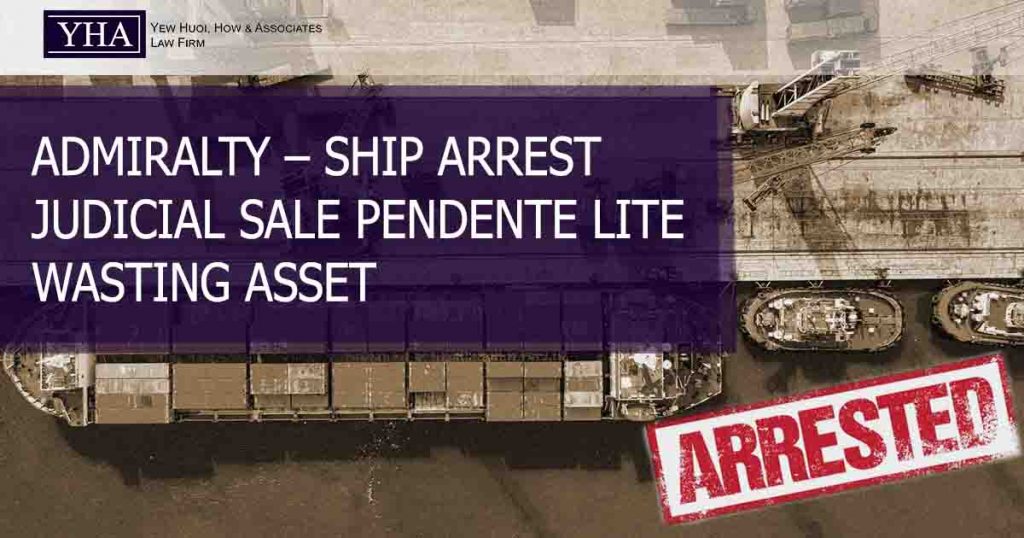We have in our earlier legal updates https://yhalaw.com.my/shipping-law-ship-arrest-mortgage-action-in-rem-service-within-malaysia set out the reasons when the court can order a sale of the vessel pending litigation (judicial sale pendente lite). One of the important factors is the vessel is deteriorating. What constitutes deterioration which will warrant judicial sale pendente lite?
One of the earliest judicial sale pendente lite ordered by the Malaysian court was the vessel “Yih Shen” on 15.4.1985. The court granted the order for appraisement and sale because “Yih Shen” was deteriorating and would reduce in price if she was allowed to be floating in waters of Penang harbour pending hearing of the main suit. Here are some of the photographs on the condition of Yih Shen in 1985 before sale.
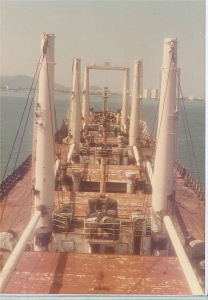 |
| Picture 1 is the view of the ship’s main deck. The main deck forms part of the external hull of the ship. As could be seen from the photograph, the main deck is heavily rusted and corroded. |
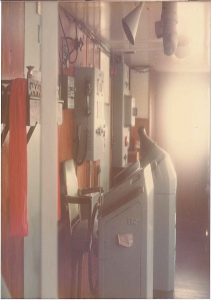 |
| Picture 2 is a photograph of the bridge and the ship’s navigational system of Yih Shen. Generally, bridge and navigational system is not in use during arrest. As such, they are not crucial in determining whether the vessel is deteriorating or not. Generally, the parts which will deteriorate during the period of arrest are those items that are in use or are subject to the corrosion of sea water condition due to prolonged period of arrest. |
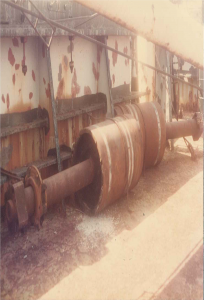 |
| Picture 3 is the cargo space ventilator trunk that allows airflow circulation in the cargo hold. This equipment is heavily rusted. Prolonged arrest will result in further corrosion as it is exposed to sea spray, rain and dry salt particles carried through the wind. |
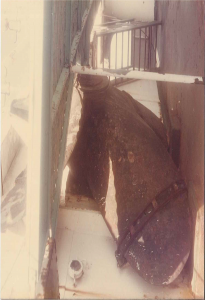 |
| Picture 4 is the propeller that is heavily rusted. |
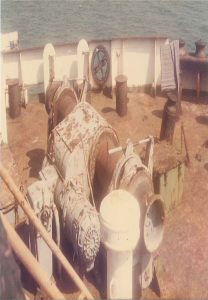 |
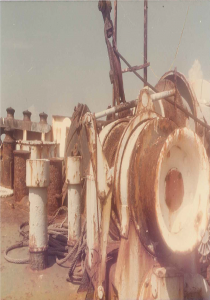 |
| Pictures 5 and 6 are the anchor windlass and mooring winches which are poorly maintained. These items are crucial during arrest to prevent situation of “dragging anchor” which would have resulted in collision, grounding or stranding of the ship. Arrested vessels rely heavily on this equipment to stay at anchorage. Badly maintained equipment relating to anchor would pose a serious safety hazard to the ship and the crew on board. |
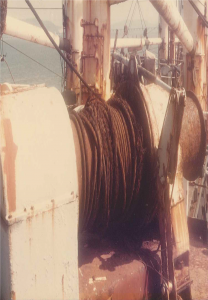 |
| Picture 7 is a photograph of the mooring lines which are heavily corroded. Mooring lines are crucial during arrest. Prolonged arrest is not recommended in this situation. |
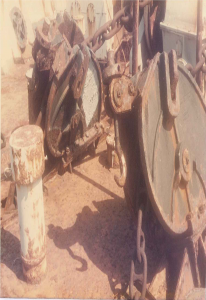 |
| Picture 8 is the sheave with hook which will only be used during loading and unloading of the cargo. Not relevant when the ship is under arrest. |

